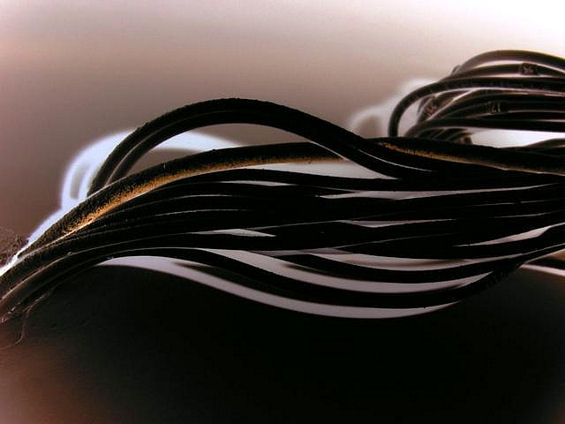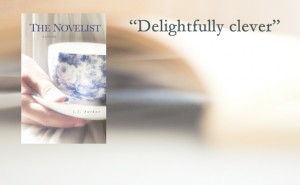Poet: Bless me, Father, for I am a poet,
and I have no idea what that means.
Priest: I absolve you from your sin.
For your penance, write an essay
on what it means to be a poet.
I confess to you, dear reader, that I don’t want to write this essay.
I have resisted it the way one resists going to the dentist to have a bad tooth pulled, the way one puts off making an appointment for that “routine” colonoscopy (as if being hammered by drugs powerful enough to fell an elephant and having color-TV cameras snaking through your innards is “routine”), the way a lying child resists telling the truth, even after she’s been caught.
I can list some reasons why I resist pontificating about who and what The Poet is:
- It’s hard.
- I am double-minded—triple-minded—no, many-minded about what it means.
- Writers much more clever than I have attempted this. And they all failed.
But the most compelling reason I am not compelled to write this essay is that I really can’t claim, with any certainty, that I have a good answer to the question. In a lifetime of reading, writing, and teaching poetry, I have seen and heard enough to know how little I know. Poor swimmer that I am, I sense the immense depth of the waters I am blithely gliding into.
I see Alexander Pope wagging a warning finger at me, “Fools rush in where angels fear to tread!”
I hear Edgar Allen Poe whispering in my ear, “Poets are fools.” (And he ought to know.)
So I take my cue from Samuel Beckett, who offers to solve both his dilemma and mine, “I can’t go on, I’ll go on.”
It’s Hard: Incarnation & The Distraction of Abstraction
It’s hard for a poet to write about The Poet because poets do not traffic in abstraction. Our bread & butter is particularity—or, perhaps I should say, particularity is our bread & butter. My business is the Feast of Life in its many minute incarnations—braised Baron of Lamb in butter, bitter arugula & bright lemon, a palmful of woody walnuts & a swallow of sweet wine. I leave the Reason for the Menu, the provenance of each dish, and the seating chart to the Philosophers, the Historians, and the Sociologists.
A poet who deals in abstraction runs the risk of losing her focus, of broadening her vision to the extent where she loses the trees for the sake of seeing the forest. (Now a forest is a lovely thing, but I think that I shall never see / A poem as lovely as a tree—a point upon which Joyce Kilmer & I agree.)
Poetry springs from contemplation of the one among the many—and from that close attention to the individual, singular eachness of each thing comes an intuition of the All. One of the primary preoccupations of the poet is to invent language that will empower ordinary objects to express their own essence and reveal their deep magic and mystery.
At my back, just now, I hear, Gerard Manley Hopkins hurrying near: these lines, from Hopkins’ fine sonnet, “As Kingfishers Catch Fire, Dragonflies Draw Flame, ” describe the raison d’etre that each object in the creation possesses & proclaims—its unique identity that the poet overhears, translates into words, and relays to the reader:
Each mortal thing does one thing and the same:
Deals out that being indoors each one dwells;
Selves—goes itself; myself it speaks and spells,
Crying What I do is me: for that I came!
It has been argued (in my own household, no less) that this partiality to particularity renders a poet somewhat of an idiot savant—a person with exquisite sensitivity to minute detail but with serious cognitive deficiency when it comes to the so-called Big Picture. Though this may not be the case with all poets, I confess (confession, yet again) this is often the case with me.
I am easily distracted from the practical Business of Life by useless bits of beauty—the lovely phrase exchanged between a couple in passing that will haunt my mind all day, the red-tailed hawk that perches and squawks on the parapet as I walk to class, crowding out the announcements I’m to make along with the lecture I’m about to give. We are the poster children for ADHD or, worse, ADOS (Attention Deficit Ooh Shiny!)—though I believe we suffer from excess of attention rather than a deficiency. The world is a loud place for poets, calling our names at every turn. It’s like having a million children, all of them needing you at once.
Amid the crush of this Real Presence, so much Incarnation, who has time for Abstraction?
(Come back next Wednesday for Part 2)
Photo by Suzi T. Creative Commons license via Flickr. Post by Angela Alaimo O’Donnell, author of Saint Sinatra and Other Poems
__________________________
Purchase The Novelist, by L.L. Barkat now!
- Re-Inventing the Ode - March 19, 2014
- Poetry: Mirroring the Unseen - June 26, 2013
- Haiku: Pierced by Beauty - December 19, 2012


Megan Willome says
Oh, I love that opening!
Angela Alaimo O'Donnell says
Thanks, Megan!
I appreciate the vote of confidence in that–I had cut it out and then brought it back–twice!
Maureen Doallas says
Love the essay.
Angela Alaimo O'Donnell says
Thank you, Maureen, as ever, for being a generous reader!
Maureen Doallas says
The Poet’s Magic
for Angela
The Poet confesses he enjoys his arugula
bittter, his lamb braised in port, how he can
make of eggs and yeast, fine flour and sugar,
the braided manna, a Challah, arms entwined,
each knot recalling the miracle of incarnation,
twelve loaves for twelve tribes. The Poet drinks
his wine, its Kingfisher label sweet in its promise
of words abundant – his raison d’etre to invent
his identity in a day’s creation. Like a dragonfly
skittering loud across water, The Poet surfaces
his deep dreaming mind, gives no lie to abstraction,
proclaims the mystery of the ordinary
the provenance of a line in the hand, the wonder
of red in the tail of a hawk, the drugging spell
of sight and sound, touch and taste, of feeling
with exquisite sensitivity the each-ness of each thing.
Angela Alaimo O'Donnell says
Dear Maureen,
What a splendid, splendid poem!
Finding your exquisite (not to say economical)poetic version of what I’m trying to say in pedestrian prose makes me want to backspace, delete my essay, paste in your poem, and type “WHAT SHE SAID!” in 16-point Times New Roman font.
I’d also type yes, yes, yes, yes, yes, yes, yes, yes, yes, yes, yes, yes, yes, yes, yes, yes in italics at the end of each line–each image so perfectly DOES what poetry does instead of just TELLING what poetry does.
I love the way beauty generates beauty and art generates art–and I’m delighted and honored that a lesser thing (like an essay) can, through the wonderfully Bad Math of Artistic Multiplcation, yield a greater thing (a fine poem).
Brava!
Chris Yokel says
Oh my word, this is amazing! Thank you Angela! I can totally relate.